Q: What is Borland announcing?
A: Borland is announcing its support for the Microsoft .NET platform. The strategy features application development environments such as Borland Delphi and Borland C++Builder that will support building managed code applications that run within the Microsoft CLR (Common Language Runtime) and use the Microsoft .NET Framework, including ASP.NET. The Borland strategy also features application interoperability across languages and operating systems through XML based Web Services.
Q: What are the advantages of Borland's .NET strategy?
A: Borland's strategy is based on allowing customers to leverage existing development investments while moving into the future with .NET. This means that with Borland's solution companies do not have to throw away existing source code, objects, and applications but instead can start with existing systems and move, migrate, and extend to .NET at their own pace either rapidly or over time. Borland's strategy allows companies to move completely to .NET at once or migrate in stages.
Q: What is .NET?
A: Microsoft .NET, Microsoft's XML Web Services Platform, is a memory safe and language neutral runtime environment and application framework designed to execute enterprise applications with high reliability. .NET heavily leverages XML-based Web Services for data exchange allowing developers, businesses, and consumers to enable applications, services and devices to work together seamlessly. Sharing data through XML allows Web Services to be independent of each other while simultaneously giving them the ability to loosely link themselves into a collaborative group that performs a particular task.
Q: Which Borland products will be supporting .NET?
A: All Borland development products, including Delphi, JBuilder (with Web Services Kit for Java), C++Builder, and Kylix, are now shipping with .NET Web Services application interoperability. Full .NET managed code application development and deployment will be supported in Borland's RAD product line, which includes Delphi and C++ language products, beginning in the second half of 2002.
Q: When will Borland provide .NET support?
A: Borland plans to release development products that support the .NET platform during the second half of 2002.
Q: How will Borland products support .NET?
A: Borland RAD products, such as Delphi and C++Builder, will generate managed code MSIL based applications that run in the .NET CLR runtime environment. These applications will also leverage the .NET Framework and will be Web Services enabled.
Q: Will Borland's RAD Framework (VCL and CLX) be supported in .NET?
A: Yes, Borland will continue to provide cross-platform framework compatibility for all supported platforms including .NET.
Q: Will Delphi and C++Builder continue to generate Intel binary applications?
A: Yes, for the foreseeable future Delphi and C++Builder will continue to generate Intel x86 binary PE executables on Windows and Kylix will continue to generate ELF executables on Linux. .NET will become the newest supported target platform for the RAD product line.
Q: What is the timeframe for .NET support in Borland RAD products?
A: Specific release dates are not available at this time. However Borland is committed to releasing .NET support in mid 2002.
Q: Will Borland support .NET on Linux?
A: Borland will continue to evaluate .NET options for Linux. But at this time Borland Kylix will continue to support the development of native Linux ELF binary executable applications.
Q: What is Borland doing to bridge the .NET and J2EE worlds?
A: Borland's strategy calls for every Borland development and deployment product in 2002 to support interoperability with .NET applications through Web Services. J2EE and .NET interoperability is central to this strategy. Borland is delivering on this strategy today with Delphi 6, JBuilder 6, Kylix 2, C++Builder 6, and Borland Enterprise Server. All of these products are now shipping with J2EE/EJB and .NET web services interoperability built-in.
Q: How do Borland's development solutions compare to other development solutions for .NET?
A: Borland's .NET strategy is a complete development, deployment, and interoperability solution that will fully support the .NET platform and allow companies to both re-use and interoperate with existing IT investments. Borland's .NET development solutions will provide companies with a freedom of platform choice and flexibility other vendors will not provide. Borland is the only company committed to providing a complete and integrated .NET solution that will work seamlessly with J2EE based solutions.
Q: Can a customer develop applications using Delphi, Kylix, and JBuilder and deploy on .NET now?
A: Customers can not yet deploy applications to run inside the .NET runtime. Our current products allow deployment into Windows, Java, and Linux. .NET is a completely new runtime application container that will be released this week. Our announcement today establishes our plans to deliver .NET runtime deployment from our Delphi and C++Builder products in 2002.
Q: Will Borland need to develop new products for .NET in the future to compete with others on the market or will the company expand the functionality of current products?
A: Borland's products are very well suited for development of .NET applications. Therefore we will expand the functionality of our products to allow customers to move to .NET and leverage existing development investments in skills, source code, and applications. New .NET products are certainly a possibility but we are not announcing any new product lines at this time. We will expand the capabilities of our products with full .NET support and continue to give customers the unique advantage of platform freedom and flexibility.
Q: What is Managed Code and why is it important?
A: Managed Code is a term used to describe a runtime system that automatically manages the creation, use, protection, and cleanup of the memory used in an application. Unmanaged Code refers to traditional applications where the programmer manually manages the allocation, use, and cleanup of application memory. Managed Code provides a protected "memory safe" environment in which to run mission critical applications that is less susceptible to programming errors. Java, and J2EE, is a programming and runtime platform that has become popularized in enterprise applications in large part due to its safe Managed Code environment. .NET provides a memory safe Managed Code environment, called CLR, with similar benefits of Java in which to run applications. Borland's .NET strategy includes the creation of Managed Code applications from Delphi and C++Builder that will run safely within the .NET CLR.
Borland .NET FAQ
80酷酷网 80kuku.com





